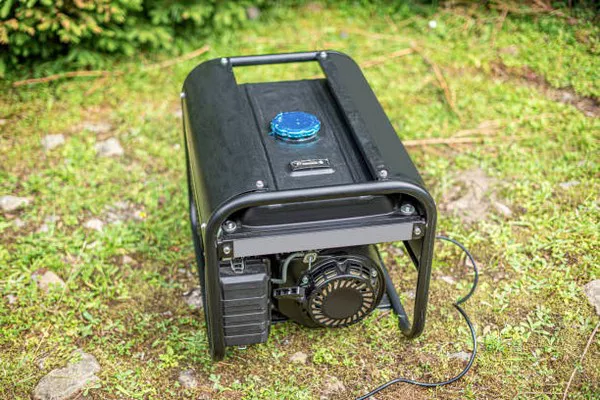With the increasing frequency of extreme weather events and power outages, homeowners are turning to generators to keep their essential appliances running. When it comes to powering heat pumps during outages, selecting the right generator size is crucial to ensure uninterrupted comfort and functionality. In this guide, we delve into the intricacies of choosing the appropriate generator size to run a heat pump efficiently and effectively.
Understanding Heat Pumps:
Before diving into generator selection, it’s essential to grasp the basics of how heat pumps operate. Heat pumps are versatile systems that provide both heating and cooling by transferring heat between indoor and outdoor environments. They are highly efficient, making them popular choices for residential heating and cooling needs. Heat pumps come in various types, including air source, ground source (geothermal), and ductless mini-split systems, each with its unique power requirements.
Factors Influencing Generator Sizing:
Several factors come into play when determining the appropriate generator size to power a heat pump:
Heat Pump Type and Capacity: The type and capacity of your heat pump significantly impact the amount of power it requires to operate. Larger heat pumps with higher heating and cooling capacities will demand more electricity during operation.
Starting Surge Current: Heat pumps, like many other motor-driven appliances, require an initial surge of power to start up, which is higher than their running wattage. This starting surge, also known as inrush current, is a crucial consideration when sizing a generator.
Efficiency and Load Profile: The efficiency of your heat pump, along with your home’s insulation and overall energy usage, influences the generator’s workload. Understanding your heat pump’s load profile under typical operating conditions helps determine the generator size needed to meet its demands.
Climate and Environmental Conditions: Climate plays a significant role in determining heat pump operation. In regions with extreme temperatures, heat pumps may need to work harder to maintain indoor comfort, resulting in increased power consumption. Additionally, factors such as altitude and humidity can affect generator performance and efficiency.
Additional Loads: Consider other essential appliances and devices you may want to power simultaneously with your heat pump during an outage. These additional loads, such as lights, refrigerators, and electronics, should be factored into the generator sizing calculations.
Calculating Generator Size:
To ensure your generator can reliably power your heat pump and other essential loads, follow these steps to calculate the required size:
Determine Heat Pump Starting Surge: Consult your heat pump’s specifications or contact the manufacturer to obtain the starting surge wattage. This figure represents the maximum power required during startup and is crucial for sizing the generator.
Calculate Running Wattage: The running wattage indicates the continuous power consumption of the heat pump during operation. This information is typically provided in the heat pump’s documentation or can be obtained from the manufacturer.
Consider Additional Loads: Identify other appliances and devices you intend to power simultaneously with your heat pump. Total the running wattages of these additional loads to determine the combined power requirements.
Account for Efficiency and Climate Factors: Adjust the calculated wattage based on your heat pump’s efficiency rating and environmental conditions, such as temperature extremes and altitude.
Select Generator Size: Choose a generator with a rated wattage that exceeds the total calculated load, including the heat pump’s starting surge and other simultaneous loads. Opting for a slightly larger generator ensures ample capacity to handle unexpected power spikes and variations.
Example Calculation:
Let’s consider an example calculation for sizing a generator to power a heat pump and additional loads:
- Heat Pump Starting Surge: 5,000 watts
- Heat Pump Running Wattage: 2,000 watts
- Additional Loads: Refrigerator (800 watts), Lights (300 watts), Electronics (500 watts)
- Efficiency Adjustment: 90%
- Total Load Calculation: (5,000 + 2,000) + (800 + 300 + 500) = 8,600 watts
- Adjusted Load: 8,600 / 0.9 = 9,555 watts
- Recommended Generator Size: 10,000 watts or higher
Choosing the Right Generator:
Once you’ve determined the appropriate generator size based on your calculations, consider the following factors when selecting a specific model:
Fuel Type: Generators are available in various fuel types, including gasoline, diesel, propane, and natural gas. Choose a fuel type that aligns with your preferences, availability, and environmental considerations.
Portability and Installation: Determine whether you need a portable generator for occasional use or a standby generator for permanent installation. Portable generators offer flexibility but require manual setup during outages, while standby generators provide seamless, automatic backup power.
Noise Level: Consider the noise output of the generator, especially if you live in a residential neighborhood or have noise restrictions. Look for models with quiet operation features or consider installing sound-dampening enclosures.
Runtime and Fuel Efficiency: Assess the generator’s runtime on a single tank of fuel and its fuel efficiency under various loads. Models with longer runtimes and greater fuel efficiency offer extended operation during prolonged outages.
Maintenance Requirements: Review the maintenance requirements of the generator, including oil changes, filter replacements, and scheduled servicing. Opt for models with user-friendly maintenance features to ensure reliable performance over time.
Conclusion:
Selecting the right generator size is essential for ensuring uninterrupted operation of your heat pump and other essential appliances during power outages. By considering factors such as heat pump type, starting surge, additional loads, and environmental conditions, you can accurately calculate the generator size needed to meet your home’s power requirements. With careful planning and informed decision-making, you can invest in a generator that provides reliable backup power for years to come.

